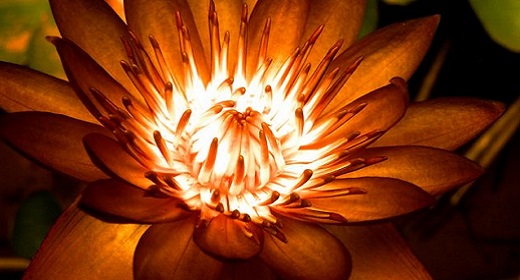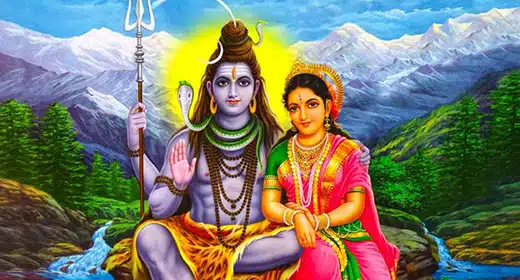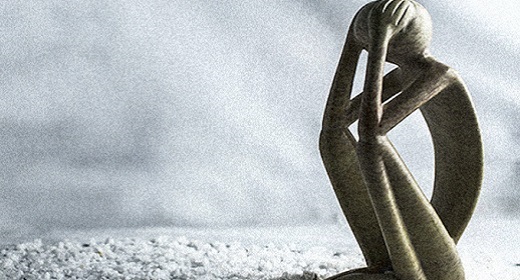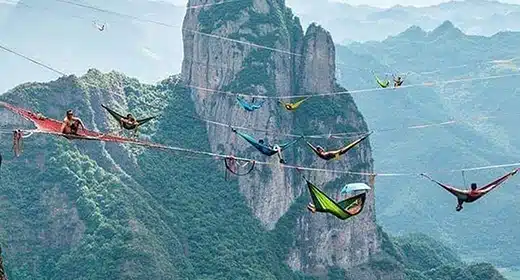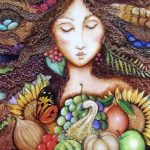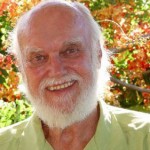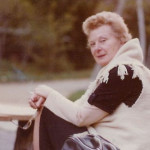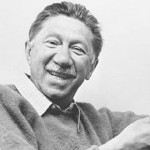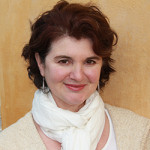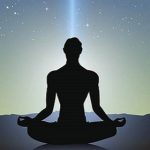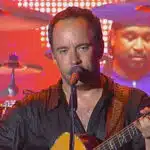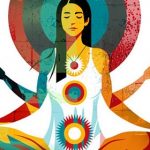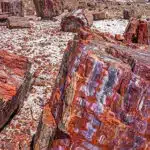by Jeffrey Howard : “There’s an ancient idea,” is the oft-refrained departure point from which he leads his audiences on an airy, spiraling language-trip which aims, ultimately,
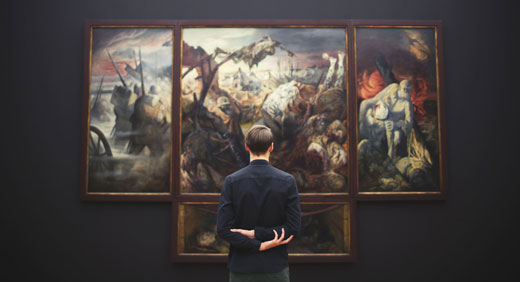
to take people deeper inside themselves—into the soul. It is understood that the wise speak of old things in new ways or tell us about new things in old ways. Michael Meade adopts the former. Or is it the latter?
His newest book, Awakening the Soul: A Deep Response to a Troubled World (2018) deviates little from what has been his core message for three decades; myth transcends entertaining stories of gods and goddesses, monsters and fantastic worlds. It’s submarine, a cavern-trove of dynamic wisdom accrued through millennia from worldwide traditions. Some will recognize the World Weary Man, an obscure Egyptian figure who wrote (1859-1813 BCE) of “his personal anguish,” while exhibiting a “clear expression of angst and collective anxiety” regarding his culture. Drawing from this soulful writer’s laments, Meade comments on the greatest threats we face today: global climate change and disconnection from the natural world, alienation, social unrest and injustices, tribalism and polarization at all levels of society, and collective fear. And, of course, he addresses the rampant nihilism that has arisen from a contemporary culture incapable of restoring our “connective spiritual tissue.” We struggle to make meaning from our existence.
In other words, according to Meade, we lack soul: “Soul is the glue of the world and the connecting principle of life…[it] connects us to things that are deep and abiding in the world and in our own lives. The depths of soul contain the vitality of life, the core powers of imagination, and the ancient inheritance of humanity.”
He asserts that it’s what’s missing “when everything has fallen apart.” This is in direct response to W.B. Yeats’ prophetic observation in the modernist poem “The Second Coming” (1919): “Things fall apart; the centre cannot hold; / Mere anarchy is loosed upon the world.”
Western society distracts, discouraging us away from rooted questions that, at times, appear too spiritual to warrant a secular-minded person’s consideration. What is the soul? What lies beneath the conscious surface? What connects all of us? How is one to live in the post-truth world?
Meade insists, “This is a book about living with meaning at a time when many people doubt that there is any meaning in the world at all…[and] the need to touch and claim ancient ideas and imaginings in order to survive modern dilemmas and become able to aid in the renewal of the world.” In a way, Awakening the Soul is one man’s challenge to postmodernist refutations of shared truth claims and grand narratives—for myth is, if it is anything, the brassy assertion that story resides at the center of what it means to be human. Everything we do is framed by story. By rejecting story we have rejected our humanity.
Jeffrey Howard: What turned you on to myth and storytelling?
Michael Meade: There’s a real distinct answer to that. It was my thirteenth birthday. I grew up in a working-class, poor family, in a working-class neighborhood, in an Irish family with lots of kids. We had no money, so you learned early on not to ask for what you want. If it’s your birthday and they ask “What do you want?” and you say what you want, you know you’re not going to get it. And not only that, the parents feel very depressed because they can’t get it for you, so after a while, I would say, “I don’t care. I don’t want anything.”
Well, my aunt asked me, “What are you interested in now?” I said history, and I was, because I was studying history. I was interested in what the heck happened. In my neighborhood, I thought everybody had lost their dreams. So she went to a bookstore to buy me a history book. She was a very short person and she asked for a history book. They pointed to an upper shelf. She went over and pulled the book down and had it wrapped in store. It was actually the first time someone in our family bought a book from the store. We had books in school, but nobody had ever bought one. She gave it to me on my birthday and I was really interested in it. I tore the paper off. She looked at it and goes, “Oh that’s the wrong book! Give it back to me.”

Mythology by Edith Hamilton
On the cover, there’s a guy sitting on a winged horse, and he’s just shot an arrow that’s arching backward behind him. I wanted to see what this was about. And she’s pulling the book saying, “It’s the wrong book. Give it back to me!” And I’m saying, “No, I like this one.” I tear the rest of the paper off and it reads Mythology by Edith Hamilton (1942), the famous volume on myth. I told her I was keeping it, and that night I read it almost in its entirety.
It was as if I had found my language. I just fell into it. I was mesmerized by the three sisters of fate, and all these stories. I was redeemed. It was as if there was a place that I could be with no qualifications. I didn’t have to say how old I was. I could just immerse in the stories. That birthday, that night, I felt I had found the language of my life.
When you throw around the word “myth,” most people just think of fables and fairytales but myth means much more. When or how did you realize that myth was a different language?
That took a while. I thought it was just something that I was interested in. Six months after that I had another experience in which I was cornered by members of an older gang who were angry at a friend of mine. They happened to catch me in a movie theatre in the bathroom. They threw me on the floor and were about to carve me up. At the moment my ego had departed. My usual persona said I’m getting out of here. This is going to be way too painful. Then a voice inside of me started telling a story. As I told the story, they kind of forgot to hurt me. At the end, they just said, “Go, get out of here.”
Now, within a six-month period, I had this invitation and visitation of being in the land of myth. And then, in a sense, storytelling saved my life. I had some sense of the power of myth and story, but I had no idea what to do with it.
When I was twenty and I was drafted to go to Vietnam. I wound up not liking the idea and I resisted, and this happened and that happened, and I wound up in a military prison. Then it turned out that I wasn’t a good prisoner. Then I went to solitary confinement. Somewhere in the turmoil of all that was going on I started to fast, fasting against injustice. Now, I was not only isolated from others, but I was really in a strange emotional-psychic space, and the stories came back to me. I’m all alone in this prison cell and I’m not alone because the characters from the stories are visiting me. That’s when I realized that myth and stories were some very deep part of own my soul that acted as a kind of nutrition when I wasn’t eating. And of course, that was still a mystery that I had a hard time describing. I had a hard time finding anyone who could relate to that.
It was a good ten years after that before I figured out that I had to tell stories. I was full of them. I’d go to a party and somebody would ask, “Do you want a glass of wine?” And I would say, “Do you know the origin of wine?” And I would start telling them about Dionysus: “…But oh in China there’s a different deity.” I’d be a total pain in the ass and somebody would say, “Why don’t you just tell stories?”
Which people have influenced your writing or your role as a storyteller the most?

The Hero with a Thousand Faces by Joseph Campbell
To begin with, it was Joseph Campbell. I read The Hero with a Thousand Faces(1949). That was mid-sixties. I was really moved by the storytelling component, the knowledge of philosophy and mythology. I realized this was more than an interest of mine. This was a place that I neede to live in. He was the first person I encountered who I thought was saying clearly that myth was pertinent to what we were doing now. Most people think that myth has to do with stuff that is old and I think of it as living myth. I partly got that idea from him, that we’re always living myth. We often don’t know that we are. Myth is trying to live through us and we’re living through the myth whether we know it or not.
Most people understand myth as this old thing that happened. Some say “sure, myth is great for the classroom or for art, but when it comes to addressing social issues we need something credible, rigorous, or practical.” What might you say to those skeptics?
I would go back to ancient Greek imagination where they said you have logic, which explains things that are factual. That’s a tremendous capacity that can make certain things very clear. But, logic can only show and describe part of the world. You need mythos as the other part. Logic is more about the mind and the facts of the situation. Mythos is about the soul, narrative, the story of the situation.
Humans beings are, by nature, logical and mythological. Pick any story in the news. People want to know what the latest is in the story. What’s the story? Humans are narrative beings. If we have to parse it out, logic has become overrated, that rationality and the pretense of knowing everything have become way too dominant. Myth has to do with experiencing things that are mysterious. There are the archetypal things that make up the great dramas of life, but myth also has the elements of the soul, which are constantly changing and being learned. We are educated to think that we’re supposed to be rational only, when we’re supposed to be rational and imaginative, logical and mythological.
You’ve introduced a few terms here, which are a bit ethereal or can by nature be difficult to capture. Or maybe, they have multitudinous meanings. In Awakening the Soul, you mention the individual soul and the Soul of the World. What are your favorite definitions for these?
One of the ways that people get at soul is by distinguishing it from spirit—especially Western people, and especially American people, have some sense of spirit. The old saying was that spirit is connected to fire and air. It’s rising. We imagine that the Great Spirit is in the sky—or the divine, however a person thinks about it. The spiritual element is in the sky.
Soul is connected to water and earth, and it descends. It goes the opposite way. It goes down to the earth and even below the earth, into the unconscious, into the depths of imagination. Soul is about deepness, about getting deeper, about growing down. It is also the connective tissue of the world. A person can go someplace, and they can say, “Oh, I love this place. I love this place! I want to be here! I want to come back here.” The old idea is that you counted the soul of the place. Certain places are soulful for people the way certain music is soulful for people. It is that aspect that is embodied—and either in subtle terms or in passionate terms—connected to everything else.
The old idea was that the world has a soul too—anima mundi would be the latin. The whole world is alive. I know nowadays because everybody has been drinking so heavily from the fountain of rationality that people cannot quite imagine that this whole thing is alive. It’s actually all connected. Modern science has, more or less, recently figured out it’s all connected, which is what everybody used to know anyway. I characterize the modern world as missing soul.
One of the most important things to me is that each person has a unique soul. In that individual there’s a spark of genius; the word genius comes from the Latin, and it means the spirit that is already there. So, inside each soul is the spark of genius that’s already there when we’re born. In living out that spark of genius and in growing soul, to me, is what life is about.
In Awakening the Soul, you argue that meaningful solutions must come from deep within. You suggest that if there’s no change on the individual level then there can be no meaningful change on the world level. However, so much of the discourse now centers on changing the external world, forcing others to change. Instead, should we focus on individual transformation to bring about societal progress?

“We’re in apocalypsis…collapse-renewal, a period of chaos and reimagination.” (Jon Tyson/Unsplash)
Good question. Of course, both happen, or both hopefully will happen. Mythologically speaking, we’re in apocalypsis. That was the old Greek word, not apocalypse but apocalypsis, which means a period of collapse-renewal, a period of chaos and reimagination. We can see the chaos part…my goodness…in America, we’ve elected the chaos part. We see the rattling of the institutions. We have people in public positions saying, “Truth is not truth. Don’t believe what you see or hear.” The very institutional knowledge is being unraveled. But at the same time we have Hurricane Florence and all the other impossibly big storms. We have the upheaval that’s dominant in nature now—climate change, global warming, shifting of all the ecologies, and loss of species, which is the biggest crises in the world you could say because it affects the entire world. Then you have the upheaval of culture with the polarization of belief systems and religions that’s happening. We’re living in an extremely unusual time which the Greeks would call apocalypsis, but the underlying meaning of it is collapse-renewal. What’s not clear is how the renewal occurs.
For my part, I’m trying to learn from stories and understand mythology. History is made from the depths of the individual soul. History is not something outside that’s coming at us. It is something that is being spawned from the depths of the soul. Each person born has a soul. Each is unique. Each has a spark of genius and an aim. What I’m trying to say is that there are so many problems out there at every level of nature and culture.
There isn’t going to be a big idea or big belief system, or something everybody can vote on that’s going to fix it. All those things may be good, but if the individual genius in diverse people were to awaken, then we would have a period of innovation, creativity, and greater imagination. Then we might actually be able to alter the course of history, thus beginning the healing of nature and culture, reuniting these two.
You’re calling for a revitalization of the uniqueness of the individual, for finding a personal change that grows outward. This brings about a more organic, spontaneous restructuring of society. It contrasts with collectivist, top-down solutions which negate individuality. We look around and we have this polarization on every major issue. Culturally we have this rise in tribalism. The individual has been erased. Instead, you’re a member of an identity group, based on race, religion, political orientation, sexual orientation, etc. What gives you hope that we’ll be able to overcome these warring camps, that we’ll find a remedy for these divisions?
After I wound up in that solitary confinement, something changed deep inside me. I eventually began to study initiation as a way of understanding that—the old idea that certain events and activities, or actions, can transform a person and initiate them into a deeper life, a greater life, whatever it is. It happened to me in a way and I had to try and figure it out. I’m combining the idea of initiation with the idea of the inspired-aimed-soul.
On one level, humans are just a speck in an endless universe. On another level, the speck that’s in the human is part of the original star that burst the entire existence of the manifest world. When we’re close to that spark, then we’re actually close to the center of the cosmos. And therefore, we can be creative.
One of the deepest powers of the human soul is imagination. And what’s needed is not simple agreement but manifest imagination. As you watch what’s happening in culture, like you mentioned, there’s tribalization, polarization on many levels, and it’s going to continue for a while because no one knows what to do with issues that are so big—like climate change—and so complex. They’re going to argue about things that they can’t handle for a while.
In the meantime, imagination arises in all kinds of unseen places. Mythologically, the world can’t end. It just comes to a chaotic state and it starts again, or it comes to places of dissolution and then it begins again. And so, I think human beings have the capacity to be aware of what’s going on. We can recognize the side of things that have fallen apart. We have a choice in this sense, of picking up some thread of meaning and living with that thread. Then what happens is we get a person living out the imagination inside the soul, the dream of their life, the passion that they have, the destiny to which they are called.
As they’re going along, coming to a human intersection, the very thing they’ve been learning inwardly becomes helpful outwardly. It’s what’s needed for healing or transforming some level of culture or nature.
What’s a specific example of individuals overcoming racism or bigotry through this very method?
I have an organization called Mosaic Voices, which is a nonprofit organization. The idea of Mosaic is to bring the different pieces together. It’s imagining that some great beautiful vessel got broken, and now we’re just trying to find the pieces, to put them back together. For decades we’ve worked with at-risk youth. We’ve done a lot of that work, in the barrios and in the hood, and so on. What I’ve been able to see working with young people is that they can move through the issues of racism rather quickly. If there’s a feeling of enough safety and if there’s enough honesty and authenticity, then I’ve seen young people in a matter of a few hours move through all the distortions of racism and find an essential connection with each other. That gives me hope that the more rapid changing of attitudes can happen.
I’m in favor of tolerance, in a sense of respect, and in being willing to be tolerant of things you don’t understand, but it’s not the answer. Tolerance is not the answer. If you had to compare it, I would say that the answer is love, that we have to find ways to love even those that we don’t understand. Love eventually has to conquer or at least outlive the fear of the other. The fear of the other starts out as a fear of an otherness in me. If I don’t know how other I am inside myself, which is an aspect of the soul, and I don’t have hints of my own inner diversity and even indigenous qualities, then I am going to be afraid of other people that have that…because I am unconscious or don’t know.
Changing from being educated to be oppressive, educated to be racist, educated to be misogynistic, changing that has to happen on a molecular level, by being in situations that are transformative.
In working with young people—and they’re all in pain and most of the people we work with have been living on the street, caught up in violence and drugs—what’s needed is a complete transformation. In the midst of those efforts to transform, people naturally get connected to others who are helpful or who see them well. In seeing that depth, the inner nobility-quality of a person, we transcend racism. It transcends gender. Once that kind of awakening occurs, then the person who transforms is more alert to the deep value of each person, and therefore less available to oppressive forms of thinking.
(Featured image source: Igor Miske/Unsplash)




